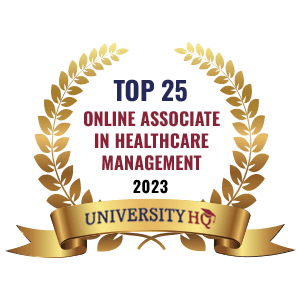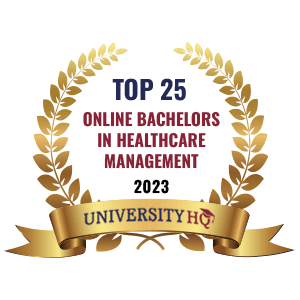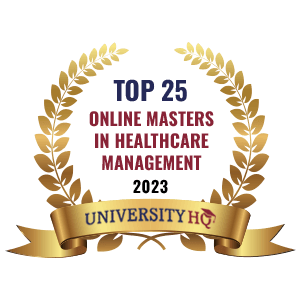What is Healthcare Management?
Healthcare managers, also referred to as healthcare administrators or executives, are responsible for overseeing the daily operations of a healthcare facility such as hospitals, clinics, nursing homes, or any other type of facility utilizing healthcare. Their duties may include overseeing budgets and financial oversight, implementing policies and procedures, managing staff, improving healthcare delivery overall, and strategic planning.
One of the primary responsibilities of healthcare managers is ensuring their organization runs efficiently and effectively, which includes monitoring the performance of various departments, implementing process improvements, and making strategic decisions to optimize resource allocation. They often collaborate with medical professionals such as doctors and nurses in providing top quality patient care that conforms with industry standards.
To become a healthcare manager, a combination of education and experience is typically required. Many healthcare managers hold a bachelor's or master's healthcare administration degree, one in health services administration, or a related field. These programs provide students with a solid foundation in management principles, healthcare laws and regulations, and healthcare finance. Some healthcare managers may also have a clinical background, such as being a registered nurse or a physician, which can also be beneficial in understanding the unique challenges of the healthcare industry.
Acquiring relevant experience is key for those aspiring to manage healthcare facilities, and internships or entry-level roles within healthcare organizations may provide invaluable knowledge of healthcare administration. Many healthcare managers begin their careers as department coordinators or assistant administrators so that they can learn all aspects of facility administration firsthand.
Furthermore, healthcare managers must possess certain skills and qualities to excel in their roles. Effective communication skills are crucial as healthcare managers must interact with various stakeholders including staff, patients, and external partners. Strong leadership abilities are also essential because healthcare managers are responsible for leading and motivating their teams to achieve organizational goals. Additionally, problem-solving and critical thinking skills are necessary to address the unique challenges that can arise in the healthcare industry.

Featured Online Programs
Online Healthcare Management Education in New Jersey
Healthcare management is a crucial field that plays a significant role in the efficient delivery of healthcare services. In New Jersey, this field is booming, with a substantial number of individuals employed in various healthcare administration positions. Health management encompasses overseeing and coordinating the provision of healthcare services to ensure they are efficient, effective, and aligned with an organization's goals and objectives. It includes many roles - hospital administrators, health information managers, clinical managers, and healthcare executives among them.
New Jersey, known for its robust healthcare system, offers numerous opportunities for professionals interested in pursuing a career in this field. The state is home to numerous hospitals, healthcare facilities, and medical centers, providing a thriving environment for healthcare managers to excel. According to the Bureau of Labor Statistics (BLS), medical and health services managers - which includes healthcare managers - are expected to experience an estimated 32% employment increase between 2019-2029. This growth can be attributed to various factors, including increased healthcare demand due to an aging population and advancements in medical technology.
As for the number of individuals employed in healthcare administration in New Jersey, the exact figures may vary, but it is undoubtedly a field that offers ample job opportunities. In a report published by the BLS in May 2020, New Jersey had approximately 11,480 medical and health services managers employed across various healthcare organizations. These managers work in various healthcare environments such as hospitals, physician offices, nursing care facilities, and government agencies.
Online Associates (AS)

Healthcare management has become an increasingly important field within the ever-evolving healthcare industry. With the increasing demand for skilled professionals to manage healthcare organizations and ensure smooth operations, pursuing an associate degree in healthcare administration can provide individuals with the necessary knowledge and skills to get started in this sector, though you might need further education to move into higher-level roles. Healthe management colleges offer comprehensive programs that encompass various aspects of healthcare administration including finance, human resources, strategic planning, and quality improvement.
These degree programs focus on equipping students with a solid foundation in business principles while also providing specialized knowledge specific to the healthcare industry. Students learn about legal and ethical considerations in healthcare administration and how to navigate complex regulatory frameworks. They are introduced to concepts like managed care, health information systems, and health policy analysis. Additionally, these programs can include practical components, such as internships or capstone projects that allow students to gain hands-on experience in real-world healthcare settings.
Graduates with an associate degree in healthcare management can pursue entry-level positions in a variety of healthcare settings such as hospitals, clinics, long-term care facilities, or insurance companies. They may work as office managers, assistant administrators, or coordinators responsible for overseeing daily operations and ensuring compliance with regulations. This degree can also serve as a steppingstone toward further education or career advancement opportunities, such as pursuing a bachelor's or master's degree in healthcare administration or related fields.
Online Bachelors (BS or BSHM)

There are numerous health management colleges and degree programs available for individuals interested in pursuing a bachelor's degree in this field. These programs are designed to provide students with the necessary knowledge and skills to effectively manage healthcare organizations and systems and to allow them to advance into higher-level positions. Students can expect to learn about various aspects of health administration including finance, human resources, operations, marketing, and quality improvement.
One popular option for individuals looking to pursue a bachelor's degree in health management is through online programs. Online programs offer flexibility and convenience for working professionals or those with other commitments. These programs typically allow students to complete coursework at their own pace while still providing opportunities for networking and collaboration with classmates.
In addition to online options, there are also traditional on-campus programs available at universities across the country. These programs can provide hands-on experiences through internships or practicum placements that allow students to apply their knowledge in real-world settings. Some colleges may also offer specialized tracks within healthcare administration programs, such as long-term care administration or health informatics, allowing students to focus on specific areas of interest within the field of health administration.
Find Your Online Healthcare Management Program
Online Masters (MS or MSHM)

There are many colleges and universities that offer a master's degree in health management or a master of business administration (MBA) with a concentration in health administration. These programs are designed to provide students with the necessary knowledge and skills to succeed in the fast-paced and complex healthcare industry. Students enrolled in these programs can expect to learn about various aspects of healthcare management such as healthcare finance, strategic planning, public health, quality improvement, human resources management, and health policy. A Master of Business Administration will have a year of foundational business administration courses followed by a year of focus on healthcare administration courses and health sector management.
One of the key benefits of pursuing a master's health administration is that it prepares you for numerous career opportunities in both clinical and non-clinical settings. Graduates can pursue careers as hospital administrators, healthcare consultants, health informatics managers, or even start their own healthcare businesses. Furthermore, this degree equips students with the leadership skills required to effectively manage teams and make critical decisions under pressure.
In addition to traditional classroom learning, many colleges also offer online or hybrid options for their healthcare administration programs. This flexibility allows working professionals or individuals with other commitments to pursue higher education without disrupting their current work schedule. With a master's degree in health management from a reputable institution, graduates can position themselves for success and advancement within the rapidly evolving field of health administration.
Online Doctorate (PhD)
Health management is a rapidly growing field that requires individuals with advanced knowledge and skills to effectively lead healthcare organizations. Pursuing a PhD in health management can provide professionals with the necessary expertise to excel in this challenging industry at the highest levels of leadership. Many colleges and universities offer comprehensive degree programs specifically tailored for aspiring healthcare managers.
These programs typically focus on developing advanced leadership and management skills, as well as providing in-depth knowledge of the healthcare industry. Students enrolled in a PhD program in health administration can expect to take courses such as health policy analysis, strategic planning, financial management, quality improvement, and human resource management. In addition to coursework, students are often required to complete a research-based dissertation that contributes to the body of knowledge within the field.
Graduates of these programs are equipped with the skills needed to assume leadership positions within hospitals, physician practices, long-term care facilities, consulting firms, government agencies, and other healthcare organizations. With a PhD in this field, individuals have opportunities for career advancement and increased earning potential. Additionally, they can contribute to improving patient outcomes and making positive changes within the ever-evolving healthcare landscape.
Online Certifications
Health management certifications play a crucial role in the professional development of individuals seeking to excel in the field of health administration. These certifications provide a comprehensive understanding of the intricacies involved in managing healthcare institutions and equip candidates with the necessary skills and knowledge to navigate this complex industry successfully.
One widely recognized certification is the Certified Healthcare Executive (CHE) offered by the American College of Healthcare Executives (ACHE). This certification focuses on leadership, strategic planning, financial management, and ethical decision-making within healthcare organizations. By achieving CHE certification, professionals demonstrate their commitment to continuous learning and professional growth while enhancing their credibility as effective leaders in health management. Another important certification is the Certified Professional in Healthcare Information and Management Systems (CPHIMS), which validates expertise in information technology systems specific to healthcare settings. This certification ensures that professionals possess an understanding of health information systems, data analytics, privacy regulations, and emerging technologies relevant to managing health information effectively.
Pursuing health management certifications can significantly enhance career prospects within this challenging industry. Whether it be through gaining a broader understanding of leadership principles or specializing in cutting-edge health IT systems, these certifications serve as essential steppingstones for professionals aspiring to become successful healthcare managers.
Become a Healthcare Manager in New Jersey
If you have a passion for healthcare and a knack for leadership, a career as a healthcare manager may be the perfect fit for you. As a healthcare manager, you will play a crucial role in overseeing the daily operations of healthcare facilities and ensuring the delivery of quality care to patients. If you're interested in pursuing this rewarding career path in the state of New Jersey, here are the steps you need to take.
-
Step 1: Obtain a Bachelor's Degree
To become a healthcare manager, it’s recommended that you start by earning a bachelor's degree in healthcare administration, health management, or a related field. Many universities and colleges in New Jersey offer comprehensive programs specifically designed to equip students with the knowledge and skills necessary for a successful career in healthcare management.
-
Step 2: Gain Relevant Work Experience
While pursuing your degree, it can help greatly to gain practical experience in the healthcare field. You might consider internships or part-time positions at hospitals, clinics, or other healthcare facilities to help you reach this goal. This hands-on experience will provide you with a deeper understanding of the industry and allow you to develop valuable skills that will be beneficial in your future managerial role.
-
Step 3: Pursue a Master's Degree
Though not always required, earning a master's degree in healthcare administration or a related field can significantly enhance your qualifications and career prospects. Many universities in New Jersey offer advanced degree programs that provide in-depth knowledge of healthcare policies, finance, operations, and strategic planning.
-
Step 4: Obtain Necessary Certifications
In New Jersey, healthcare managers can pursue certifications to further validate their skills and expertise. The American College of Healthcare Executives (ACHE) offers the Certified Healthcare Executive (CHE) certification, which demonstrates your commitment to ongoing professional development and excellence in health management. Or, depending on the state in which you plan to work, you may need to earn a certification to run a long-term care facility.
-
Step 5: Network and Join Professional Organizations
Networking is crucial for advancing your career in healthcare management. You can join professional organizations such as the New Jersey Association of Healthcare Executives (NJHA) or the Healthcare Leadership Network of New Jersey (HLNNJ) to help you network with others in the field. These organizations provide valuable networking opportunities, access to industry events, and resources for professional development.
Find Online Healthcare Management Programs
What Can I Do with a Bachelor's in Healthcare Management?
Health management is a fast-growing field that offers numerous career opportunities for individuals with a bachelor's degree in the subject. Graduates can pursue various roles within healthcare organizations such as working as healthcare administrators, medical office managers, or health information managers. These professionals are responsible for overseeing the day-to-day operations of healthcare facilities, ensuring smooth functioning, and efficient service delivery.
Additionally, individuals with a bachelor's in health management can work in consulting firms or government agencies to provide expertise and guidance on healthcare policies and regulations. They may also find employment in insurance companies, where they analyze data to assess risk and develop strategies to improve patient outcomes while reducing costs. With further education and experience, many graduates go on to become executives or managers at hospitals or other healthcare institutions.
Overall, a bachelor's degree in healthcare management equips individuals with the knowledge and skills necessary to navigate the complex world of healthcare administration and make significant contributions towards improving patient care outcomes.
Potential Careers for Healthcare Management Graduates
- Patient Service Representative:
A patient service representative is responsible for providing excellent customer service to patients and visitors in a healthcare setting. They will be the first point of contact for patients, addressing their inquiries, scheduling appointments, and ensuring a positive experience.
Necessary Requirements:
- High school diploma or equivalent
- Previous customer service experience preferred
- Strong communication skills with the ability to effectively interact with patients of diverse backgrounds
- Proficient computer skills and knowledge of medical office
Estimated Salary
- The median annual wage for customer service representatives in the US in 2021 was $36,920.
- The mean annual wage for customer service representatives in New Jersey is $45,210
- Healthcare Department Manager:
A healthcare department manager is responsible for overseeing the daily operations of a healthcare department, such as emergency medicine, outpatient or inpatient services, pediatrics, etc. They ensure efficient and effective delivery of services. They will collaborate with medical professionals, administrative staff, and other department managers to optimize patient care and achieve departmental goals.
Necessary Requirements:
- Bachelor's degree in healthcare administration or a related field (Master's degree preferred).
- Proven experience in health management or a similar leadership role
Estimated Salary
- The median annual wage for medical and health services managers in the US in 2021 was $101,340
- The mean annual wage for medical and health services managers in New Jersey is $153,300
- Physician Practice Manager:
A physician practice manager is responsible for the overall management and administration of a physician practice or group of practices. They ensure the smooth operation of the practice, including financial management, staff supervision, patient satisfaction, and compliance with healthcare regulations.
Necessary Requirements:
- Bachelor's degree in healthcare administration or a related field (Master's degree preferred)
- Proven experience in managing a physician practice or healthcare facility
- Strong knowledge of healthcare regulations, billing
Estimated Salary
- The median annual wage for medical and health services managers in the US in 2021 was $101,340
- The mean annual wage for medical and health services managers in New Jersey is $153,300
- Chief Operations Officer:
A chief operations officer (COO) is accountable for overseeing and optimizing daily operations of their company, working alongside their CEO and other senior management. Together they create strategic plans, improve efficiency, and ensure all goals and objectives of the business are fulfilled.
Necessary Requirements:
- Bachelor's degree in business administration or a related field; MBA preferred
- Proven experience in a senior leadership role, preferably as a COO or similar position
Estimated Salary
- The mean annual wage for chief executives in the US in 2021 was $246,440
- The mean annual wage for chief executives in New Jersey is $414,350
- Assisted Living Administrator:
An assisted living administrator is accountable for overseeing the day-to-day operations of an assisted living facility and ensuring residents receive high-quality care in a safe, comfortable environment. They collaborate with staff, residents, families, healthcare professionals, and healthcare systems in order to promote resident wellbeing.
Necessary Requirements:
- Bachelor's degree in healthcare administration or related field (preferred)
- Previous experience in a management or administrative role in an assisted living facility (required)
- Knowledge of state and federal regulations
Estimated Salary
- The median annual wage for medical and health services managers in the US in 2021 was $101,340
- The mean annual wage for medical and health services managers in New Jersey is $153,300
- Post Secondary Professor in Healthcare Management:
Postsecondary professors of health management are charged with teaching and mentoring students pursuing degrees in health management at postsecondary institutions. Their duties involve creating and teaching curriculum covering health policy, economics, strategic planning, and organizational behavior. They may also perform research.
Necessary Requirements:
- A doctoral degree (Ph.D.) in a relevant field such as healthcare administration, health services research, or business administration with a focus on healthcare management.
Estimated Salary
- The median annual wage for postsecondary teachers in the US in 2021 was $79,640
- The mean annual wage for postsecondary teachers, all other in New Jersey is $98,910
- Pharmaceutical Administrator:
Pharmaceutical administrators are charged with overseeing the administrative operations of pharmaceutical companies or departments including their daily administrative tasks such as maintaining records, coordinating among various departments, and adhering to industry regulations.
Necessary Requirements:
- Bachelor's degree in pharmacy, administration, or a related field
- Proven experience in administrative roles within the pharmaceutical industry is preferred
- Strong knowledge of pharmaceutical regulations and compliance requirements
Estimated Salary
- The median annual wage for pharmacists in the US in 2021 was $128,570
- The mean annual wage for pharmacists in New Jersey is $127,680
- Healthcare Human Resources Manager:
A healthcare human resources manager is responsible for overseeing all human resources functions within a healthcare organization. This role requires a deep understanding of the healthcare industry and the ability to effectively manage HR operations in a fast-paced and complex environment.
Necessary Requirements:
- Bachelor's degree in Human Resources or a related field; Master's degree preferred
- Minimum of 5 years of experience in human resources management within the health industry
Estimated Salary
- The median annual wage for human resources managers in the US in 2021 was $126,230
- The mean annual wage for human resources managers in New Jersey is $183,060
Search All Programs
